- A Manor of Wellness
Sandra Owen-Kelly, MS, L Ac9 John Gray Road
Livingston Manor NY 12758914-799-0591 Hours by Appointment
-
Latest Articles:
- • 10 Family-Friendly Activities Perfect for Spring •
- • 3 Easy Spring Dinner Ideas for a Fresh and Flavorful Season •
- • 5 Tips to Boost Your Spring Wellness Routine •
- Come in this month for a special rate!
Health WellNews
Self-Care and Preventative Medicines
Should I get acupuncture even when I’m not sick? This is a question I get often.
For thousands of years practitioners of acupuncture & Traditional Chinese Medicine (or TCM) have emphasized the importance of preventing illness and disease. So the answer is yes, by definition acupuncture and TCM work to keep the body in balance, not only to revive you when you when stricken by illness.

Going to the doctor when healthy is an obscure thought to those in the Western medical system. TCM practitioners look to many aspects of their patient’s lives beyond the physical aches and pains. According to TCM, there are many contributing factors that can bring the body out of balance. These include both internal and external factors such as seasonal changes, diet, physical activity, and emotional wellbeing.
Western allopathic medicine usually doesn’t recognize the role of emotions in creating illness beyond acknowledging stress exacerbates or causes 80 percent of all illnesses. According to TCM theory, specific emotions are linked to specific parts of the body: being stuck on any one emotion can bring that part of the body out of balance. Acupuncture and TCM can help us stay healthy by balancing these tendencies before chronic imbalances set in.
In one of the oldest books on TCM, “The Inner Classics of the Yellow Emperor,” compiled around 100 B.C.E., it’s written that excess joy slows and scatters qi, excess anger causes qi to ascend, excess sadness and grief weakens qi, excess worry knots and binds qi, fear descends qi and fright induces chaotic qi. The good news is each excessive emotions can be ‘harnessed,’ transformed and channeled into a virtuous emotion, which restores harmony and wellbeing. This transformation of emotions from excess to virtue is a vital aspect of the Yang-Sheng or preventative branch of Traditional Chinese Medicine.
Among the most common of excess emotion is the tendency of overthinking, worry and rumination; this will tend to result in digestive issues and/or metabolism concerns, as well as muscular tension and pain. In order to maintain optimal health one must learn to transform overthinking and worry into the virtue of creativity and dynamic insight.
Developing a regular meditation practice, even five to ten minutes once a day, can make a difference! You will develop the discipline to redirect worry and overthinking into resting in the present moment more often. A quote from “The Dhammapada” (The Buddha’s Path of Wisdom) expresses this, “As the bee collects nectar and departs without injuring the flower, or its color or scent, so let a sage dwell in his village.” When you find yourself worrying, compare your thoughts to a bee. Allow yourself to collect the ‘pollen’ of your thought while also germinating future ideas. This will transform your thoughts into nectar. A bee does not cling to only one flower.
Acupuncture can help you let go and move forward.
Try using acupressure at ST-36 and SP-3 to transform worry into creative action.
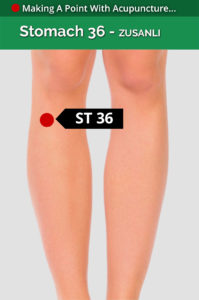 ST-36 is the great harmonizer point: this point does it all! ST-36 can help motivate you, improve your energy, digestion, and boosting your immune system! Locate this point by placing one hand just below the outer knee cap (index finger by the knee cap), use your other hand to find ST-36 (just below your pinky finger) just off the outer shin.
ST-36 is the great harmonizer point: this point does it all! ST-36 can help motivate you, improve your energy, digestion, and boosting your immune system! Locate this point by placing one hand just below the outer knee cap (index finger by the knee cap), use your other hand to find ST-36 (just below your pinky finger) just off the outer shin.
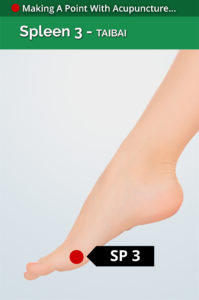 Pair ST-36 with acupressure at SP-3 to clarify your mind and regulate your digestion. Locate SP-3 along the inside of the foot, run your finger along the edge of the big toe until your finger ‘falls’ into a divot, about a three-finger width from the base of the big toe.
Pair ST-36 with acupressure at SP-3 to clarify your mind and regulate your digestion. Locate SP-3 along the inside of the foot, run your finger along the edge of the big toe until your finger ‘falls’ into a divot, about a three-finger width from the base of the big toe.
Look for future articles for tips on transforming other excessive emotions and nourish your vitality and wellbeing with the wisdom of Traditional Chinese Medicine.
Give us a call today to schedule your acupuncture tune-up.
Season of the Lungs
The theories of Chinese medicine suggest that each season relates to a different organ system. The Fall is the season of the Lungs. It’s the time of year when people are easily affected by environmental influences. Great changes are taking place in the weather and plant life around us. Some people refer to it as the “flu season.”

The lungs are called the “delicate protective organ,” because they are the only organ that comes into direct contact with the external environment. This can make them vulnerable to the environmental influences which can lead to colds, the flu or allergies.
The lungs are also involved in the production of Wei Qi. Wei Qi is a similar concept to what Western medicine refers to as the immune system. Wei Qi provides the body with an “immune system-like” barrier that protects the body from harmful pathogenic factors that can enter into it, and which may eventually lead to illness and/or disease.
Healthy and strong lungs can enhance the proper functions of the entire body. Through an intricate process, the Lungs extract “pure essence” from the air we breathe and combine it with the food we ingest to produce the Wei Qi. This immunity-like system is then circulated throughout the entire body, providing it with a first line of defense.
When the lungs are functioning correctly, we remain healthy, and potentially free from illness, however, when our lungs become weakened or imbalanced, our body may not have the capacity to produce the correct amount of Wei Qi. When this occurs, the stage for “catching” a cold, the flu or allergies is set. Weak lungs and Wei Qi can also lead to asthma, eczema, dry skin and other problems.
The lungs are negatively affected by many factors: an improper diet, emotional stress, unexpressed or long-held grief or sadness, inherited constitution, smoking, bad air or pollution.
The ancient classic text, Zhen Jing, states, “If the lungs function well, it can activate the flow of Qi, and nourish the whole body with Wei Qi, as rain nourishes young crops.” Proper lung function is necessary to keep us healthy and to help ward off illness and disease.
Staying Healthy and Happy this Autumn
The cooler days and longer nights of autumn have transitioned from the bright, busy days of summer. The natural world is getting ready for the cold months ahead and our bodies are adapting to the changing seasons.
Traditional Chinese Medicine (TCM) tells us that we are all part of the natural world and its rhythms. As the harvest season settles in, you may find yourself looking inward, reflecting on your life and preparing for the winter in your own way.

In TCM, each season corresponds to a specific Organ System. For example, during the autumn, the Lungs are at their most active point and are susceptible to both positive and negative influences. The Lungs, often referred to as “the delicate protective organ” because of their direct contact with the environment, perform the important function of extracting Qi (“vital energy”) from the air we breathe.
Another important function of the Lungs is to produce Wei Qi. Wei Qi is similar to the Western concept of the immune system and protects the body against harmful external factors.
When the Lungs are strong and balanced, we’re generally able to stay healthy and avoid illness. However, if the Lungs are out of balance, we become more likely to suffer from conditions such as colds, flu, asthma, allergies and other respiratory concerns.
SUPPORT YOUR LUNGS THIS SEASON WITH THESE SELF-CARE TIPS:
WARM UP: Protect yourself against the wind and cold. Nourish your body by eating more warm, cooked foods.
COVER UP: Weather can change quickly this time of year. Layering clothing or having an extra sweater will help keep your body warm and at the right temperature in order to stay healthy. Have you ever noticed when you first start to catch a cold, you have a stiff neck followed by aches and pains and even fatigue? The back of your neck is vulnerable to Wind, and when your pores are open up, Wind can get into your body where it doesn’t belong thus causing your body to be more vulnerable to colds! Wearing a scarf can help prevent colds and keep you snug in the winter months.
FOCUS ON EMOTIONS: Try to let go of negative feelings such as grief and sadness. These can strongly affect your body’s overall balance in this season, and those to come.
BREATHE DEEP: Try breathing exercises daily to keep the Lungs healthy. I can recommend and teach you specific exercises and self-care techniques in order to keep you functioning optimally.
SEEK PREVENTIVE CARE: Schedule an appointment with me for a “seasonal tune-up” that is designed to strengthen your Wei Qi and help you maintain balance throughout the seasons to come.
Acupuncture and the Small Intestine
The small intestine is part of the gastrointestinal tract and up to 90 percent of the digestion and absorption of food occurs here. The small intestine’s main function is the absorption of minerals and nutrients from the food we ingest. It consists of three separate parts; the duodenum, the jejunum, and the ileum. The small intestine measures upwards of six to seven meters long and it has a surface area of over 200 meters. In the Traditional Chinese Medicinal system, the small intestine is much more than just its physical traits.
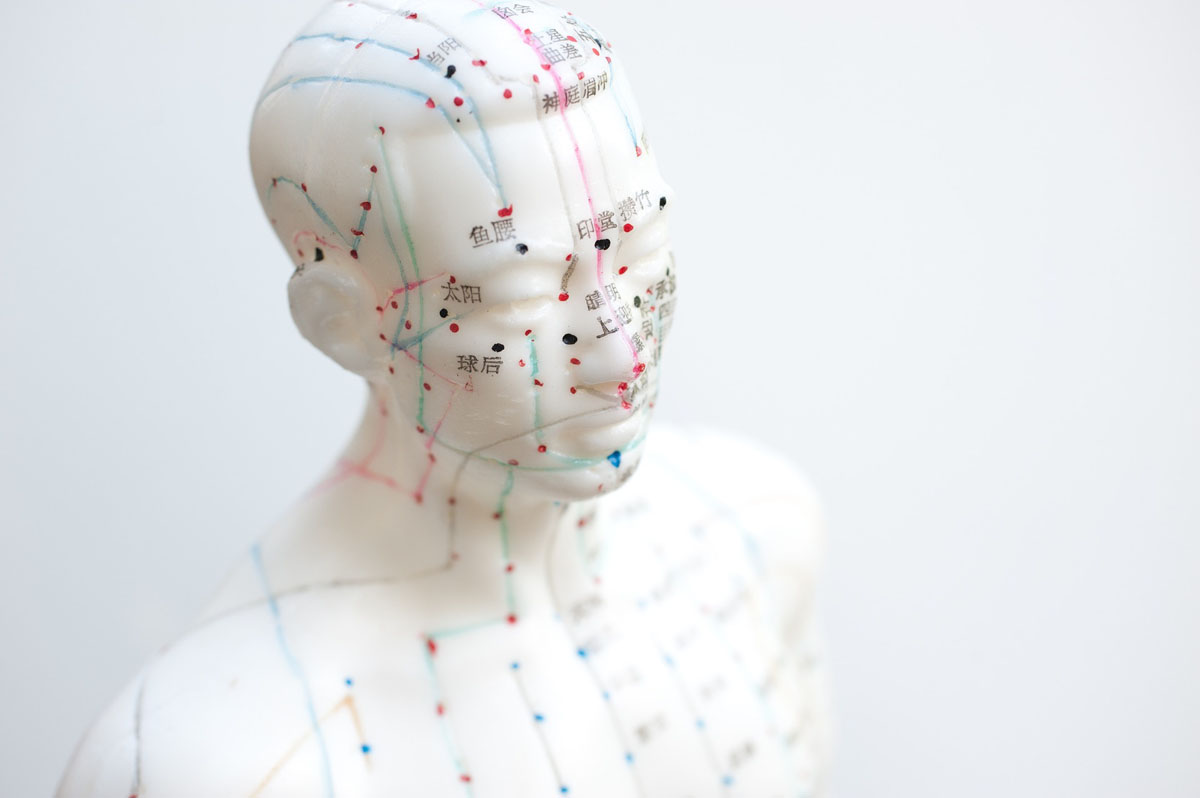
TCM pairs energetic meridians so that they form a complete circuit, to maintain a balance, there is always a yang and a yin meridian, which you may recognize as a black and white circular symbol. The small intestine meridian is paired with the heart meridian. Imbalances in the small intestine meridian can lead to problems such as abdominal pain, digestion issues, and also appetite problems like overeating or poor appetite. The small intestine meridian starts at the outer tip of the pinky finger and runs up the arm, over the scapula of the shoulder, continues up the neck, and ends in front of the ear. The meridian pathway allows for it to be useful in treating not just intestinal and abdominal issues, but also ailments like earaches, TMJ, shoulder, and neck pain.
The small intestine is the controller of the reception, transformation, and separation of solids and fluids. It receives food and fluids from the stomach and then transforms them by separating the pure from the impure. The pure essence is dispersed throughout the body and the impurities are flushed into the large intestine for eventual removal from the body.
The small intestine meridian is particularly sensitive to cold. Therefore eating lots of cold, raw foods can actually lead to problems in the small intestine. When excess cold invades the small intestine, there may be pain around the navel, watery diarrhea or loose stools, frequent clear urination, and loud gurgling sounds in the abdomen.
In TCM, the small intestine plays both a physical and a mental role. The mental role of the small intestine is to separate the clear thoughts from the turbid ones. This is another way the small intestine is connected to the heart in TCM. The heart houses the mind and is in charge of all of our mental health. Clear judgment depends on the ability of the small intestine to separate the pure from the impure. When there is dysfunction in the small intestine, then there may also be dysfunction in the mind.
While the small intestine may not seem as important as the heart or the kidneys, it is still an integral part of our body and as such, it should be taken care of equally as well. If you experience any abdominal or emotional issues, give us a call, and let’s schedule your first appointment! But most of all, take good care of your gastrointestinal health and your body will respond favorably.
TCM for Summer Heat
Traditional Chinese Medicine or TCM, is a medical system that dates back nearly 3,500 years. This system uses modalities like acupuncture and botanical formulas to treat ailments and keep the body balanced. TCM acknowledges not four, but five seasons.
The fifth season that differentiates from the other seasons that many go by is called Indian summer. This 5th season occurs in late August through mid-September. Each season according to TCM has a pair of organs or energetic pathways it corresponds to.
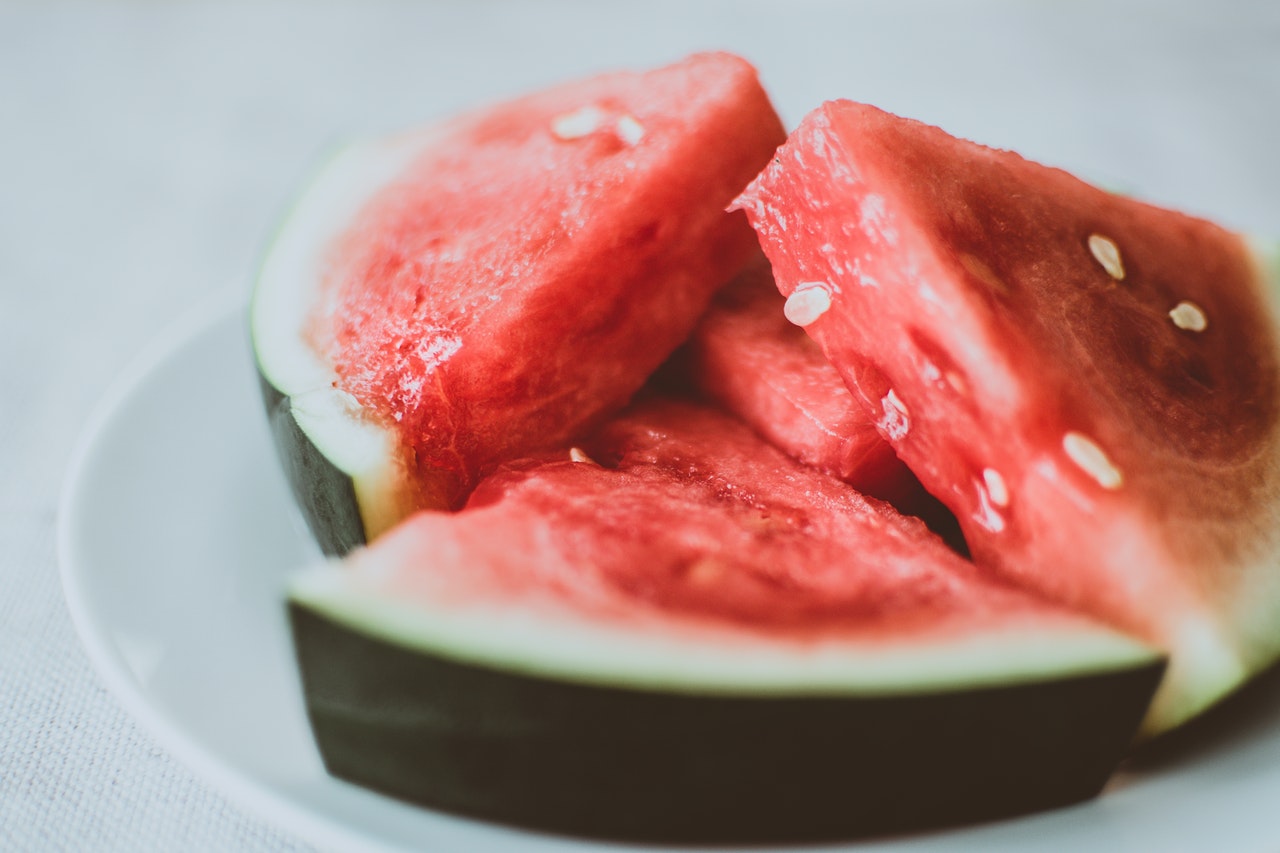
For Indian summer, these organs are the spleen and stomach which are directly responsible for digestion. The spleen also has the added function of transporting and absorbing water in the body. When the spleen is not functioning properly, the body may suffer from a buildup of dampness which can manifest as edema, digestive issues, diabetes, and even brain fog.
Indian summer tends to be the time of year when most people experience health issues such as heatstroke, although it can happen at any time of year. Here are some ways TCM can help you deal with the excessive summer heat.
ACUPUNCTURE FOR SUMMER HEAT:
As mentioned, when summer comes to an end, it tends to heat up before the transition into Fall and this is when many people experience heatstroke. This is where acupuncture comes into play. Along with regulating the body temperature, acupuncture can decrease any inflammation that may have occurred during the heatstroke episode and the acupuncture treatments can help with the digestive issues frequently accompanying heatstroke.
Acupuncture points for summer heat:
Heart 8 – Located on the palm of the hand between the pinky and ring finger. Found by making a fist, Heart 8 can be used to decrease thirst and restlessness, while also treating insomnia.
Large Intestine 11 – This point can be found bilaterally at the outer end of the elbow crease created when the arm is flexed. Large intestine 11 clears heat, drops a fever and decreases any inflammation that may be occurring due to excess heat in the body.
Pericardium 3 – Located bilaterally on the inner elbow next to the large tendon, this point is great for sunstroke or anxiety that often accompanies heatstroke.
CHINESE HERBS AND FORMULAS FOR SUMMER HEAT: Another important component of TCM is the use of herbs and herbal formulas. Many times herbs can be used alone, but there will be a more synergistic effect when single herbs are combined to make a formula. One such herb is the lotus leaf, also known as He Ye. This herb is frequently used to treat diarrhea associated with summer heat. A go-to herbal formula used to clear summer heat is Qing Luo Yin. This formula eliminates the symptoms of heatstroke, such as fever, blurry vision, and brain fog. It’s not a bad idea to keep this formula on hand when spending lots of time outside during the summer.
DIETARY RECOMMENDATIONS FOR SUMMER HEAT: Nutrition can also be very important in preventing summer heat or heatstroke. Certain foods have been used for centuries to fight summer heat. One of these is watermelon. Watermelons are 90 percent water and therefore eating it throughout the warmer summer months can help keep your core body temperature low enough that heatstroke is more preventable. Another cooling food is mint and it can be used in many summer food recipes. It is frequently added to a pitcher of water to create a nice refreshing drink that can be sipped all day long, or added atop a fruit salad consisting of strawberries, blueberries, and watermelon.
In Summer, Nourish Your Heart
Summer is a time of abundant energy, long sunshine-filled days, and warmth. In Traditional Chinese Medicine (TCM), summer has many different associations that help define it and therefore help us understand how to stay in balance with the season. To shed some light on the context of summer, its element is fire, the color is red, its emotion is joy and the governing organs are the heart and the small intestine. One way you can stay healthy this Summer is to adjust your habits in order to support your heart.

The heart is the main organ associated with the season of summer, and as such, it should be paid close attention to and nourished to remain healthy. The heart’s main function is to circulate oxygen-rich blood throughout the body. In TCM, mental activity is also associated with the heart. This mental activity is known as Shen in Chinese medicine. Often compared to our mind, the Shen goes deeper to include our thought processes, memory, consciousness, and emotional well-being.
Summer is the most appropriate time to calm the Shen and provide
it with enrichment that will last throughout the whole year.
When the fire element is balanced, the mind is calm, sleep is sound and the heart organ is strong and healthy. If the fire element is not balanced, there may be depression or an excess of joy which manifests as mania. Symptoms of an unbalanced fire element include heartburn, insomnia, agitation, nervousness, digestive upset, rashes, palpitations, and excessive perspiration.
The small intestine, the second organ associated with summer in TCM, is responsible for separating the pure from the impure, allowing the body to use the pure and dispose of the impure. When the heart is not balanced, the small intestine, the brother to the heart, will not function properly either. For many people, this manifests as digestive upset of some sort: vomiting, nausea, diarrhea, etc.
Going outside and engaging all of your senses is an easy way to nourish the heart. A technique known as “grounding” has been gaining popularity over the past decade, and science is showing that it can be very beneficial. All one has to do is walk or stand in the grass while barefoot. The energy from the earth is incredible, and it can be very healing. While you’re there, take time to listen to the sounds of nature that surround you and enjoy the fragrances of the flowers. Taking in the experience with all your senses can be very grounding and have a calming effect on the mind and body.
Probably the two most important things you can do for heart health during the summer months is drink plenty of fresh water and eat cooling foods. No matter what season of the year, water is vital. It is recommended we drink at least 64 ounces per day. Cooling foods like fruits are good at keeping fire under control, which is healthy for the whole body. Other foods that are beneficial for the summer months include peppers, eggplant, cabbage, kale, broccoli, spinach, melons of all kinds, beets, radishes, jicama, carrots, berries, pineapple, cucumbers, peaches, peppermint, grapefruit, and mushrooms.
Healthy Eating for Spring
According to Traditional Chinese Medicine theory, spring is the season of the liver and the gallbladder. These organs regulate a smooth flow of energy throughout the whole body. However, they are prone to stagnation if we do not take proper care of ourselves. This can manifest as anger, irritability, depression, insomnia and even pain. Stagnation can occur when people live an unhealthy lifestyle and make poor dietary decisions.
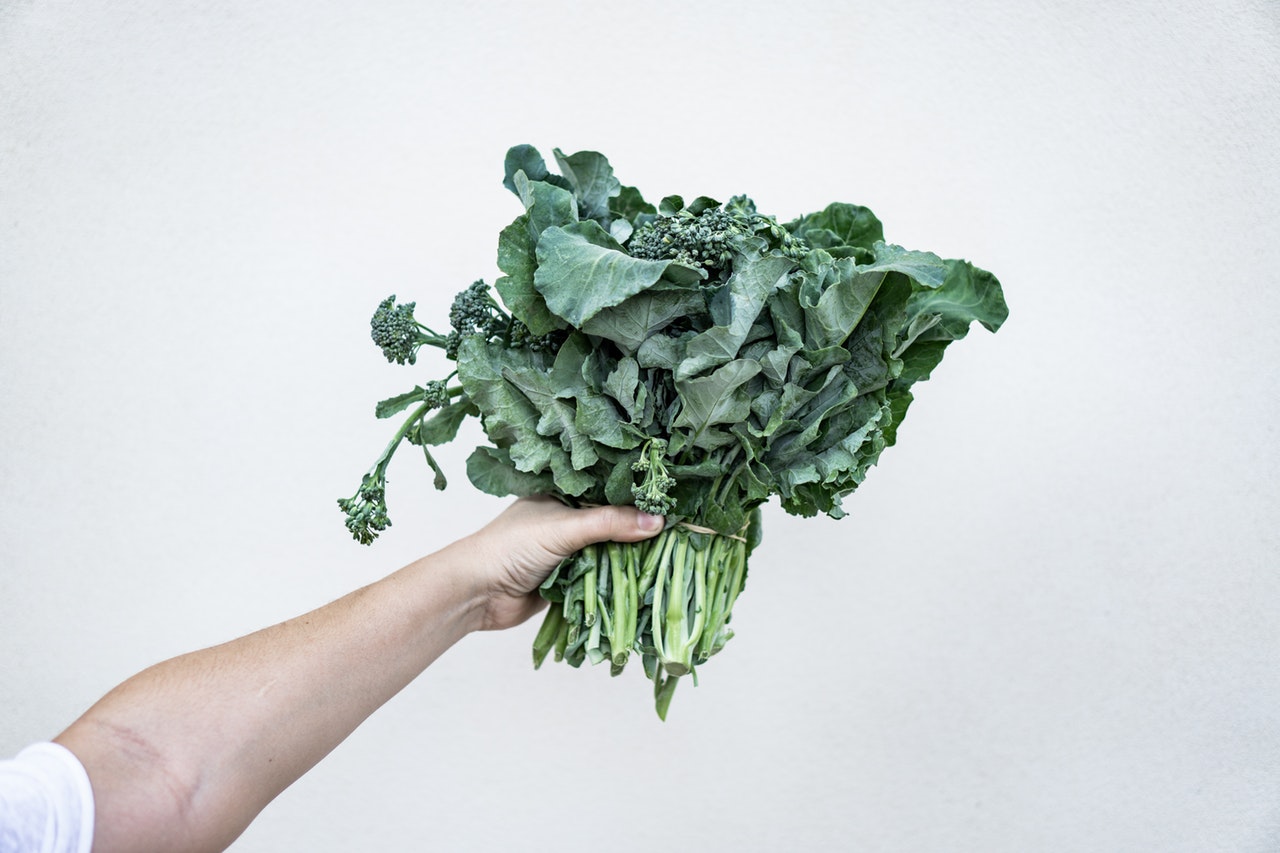
Spring is a time of renewal, regeneration, growth and energy. Plants and animals awaken from their slumber, and vital nutrients stored in the roots of plants during the cold winter months come to the surface as life becomes more vibrant and fluid.
Human beings are no different. Humans stay indoors more during the winter months, and tend to pack on a little extra weight in the process. As the weather warms, humans become more gregarious and spend more time outside enjoying nature. This is just a natural process.
Therefore, it makes sense that what was observed by the ancient Chinese should still hold true today. Humans are supposed to take their cues from nature. As a species, humans should be more active during the warmer spring months. And to do this, we need proper nourishment. Qi (pronounced “chee”) can be interpreted as the “life energy” or “life force,” that flows within us. This Qi is the vital substance that keeps our bodies functioning until the day we die. To keep the Qi plentiful, we need to eat the proper foods at the proper times.
During the spring, we should be eating foods that have upward moving energies, such as green, sprouting vegetables. But we also need food that will provide the extra nourishment for the increased amount of activity that accompany the season of spring. This is where bitter foods play a vital role. Bitter foods are known to clear heat, dry dampness and stimulate appetite. Consider adding foods such as kale, collards, celery or arugula to provide yourself some much needed springtime energy.
Foods that have a slightly bitter taste, such as asparagus, quinoa, romaine lettuce and dandelion tea, are also known to effectively ward off heat in the liver. Food rich in chlorophyll help ward off stagnation and enhance the free flow of Qi, these include wheat grass, spirulina, chlorella, parsley, kale, Swiss chard and collard greens. Notice, all of these are abundant during the months of spring. Finally we suggest adding a glass of warm water with a slice of lemon first thing in the morning. This routine will help detoxify the liver and gallbladder to start the day off fresh.
Six Reasons to Try Acupuncture this Year
Do you ever feel that you’re on a roller coaster ride that never ends? Do you have aches and pains almost daily? How many nights a week do you stare at the clock waiting for sleep to arrive? Are medications ruling your life? When was the last time you actually felt at peace? If any of these questions resonate with you, it might be time to look to Traditional Chinese Medicine for answers. Acupuncture is one modality of Traditional Chinese Medicine, and people throughout Asia have known the magnificence of acupuncture for thousands of years. Over the last several years, Traditional Chinese Medicine has been growing in popularity worldwide.
Here are six reasons why you might want to consider using it too.
MANAGE YOUR PAIN
Pain is the number one reason why people turn to acupuncture, and for good reason. If you’ve tried everything else and have found little to no relief, acupuncture may be right for you. But remember, chronic pain took time to develop and it will also take time for acupuncture treatments to work. Many people get some relief immediately, but acupuncture works on a cumulative basis, so commitment to the process and adhering to your suggested treatment regime, is a must.

GET SOME REST
Acupuncture can address imbalances in your body that may contribute to your inability to get a good night’s sleep. It’s been shown that acupuncture can actually encourage the brain to produce the chemicals that help you relax and sleep better. If you have difficulty falling asleep, wake up frequently or you toss and turn a lot, acupuncture might just be the missing link. In fact, many people report falling asleep while receiving acupuncture treatments and say they sleep like babies after their treatments.
ALLEVIATE YOUR ALLERGIES
Seasonal or otherwise, allergies can be debilitating. Multiple studies have shown allergy symptoms can be decreased and sometimes even eliminated with the use of regular acupuncture treatments. Acupuncture can dramatically lessen allergic reactions, and in some cases help overcome what caused the symptoms in the first place. This safe and effective medicine can help most people reduce or eliminate dependence on allergy medication.
MANAGE YOUR MENSTRUATION
Many women suffer monthly from menstruation problems. It can be that her period is irregular, painful or so heavy that it leads to anemia and fatigue. There can also be mental health issues associated with periods, such as depression, anger and irritability. Most over-the-counter medications simply mask symptoms. But to treat the root of the problem, give acupuncture a try. Acupuncture works to balance your body’s systems to regulate menstrual problems and alleviate nagging symptoms that plague women monthly.
ADDRESS YOUR ANXIETY, STRESS, OR DEPRESSION
Thousands of people in the U.S. suffer from stress, depression and anxiety. While there are many amazing therapists available to talk to, talk therapy may not be enough. Another common route is the use of prescription medications. But those are accompanied with unwanted side effects. This is where acupuncture and Chinese herbal formulas can help. Acupuncture can actually start to relieve symptoms of depression, stress and anxiety in a few treatments without harsh side effects, and is drug-free and safe. With mental health issues looming as a larger problem, it makes sense to try a natural alternative first.
TRY PREVENTIVE MEDICINE
Did you know that acupuncture’s main function is to help keep you healthy? Acupuncture is not always known as a method of preventive care, but it should be.
Waiting until there is an injury or illness will only cause the treatments to take longer to be effective. Using acupuncture preemptively will help you fight off illness and let you recover more quickly.
These 6 reasons are enough to give acupuncture a try. It is 100% safe, natural, drug-free and effective.
GIVE US A CALL TODAY!
Acupuncture for Treating Depression
Depression has a tendency to rear its head when we feel overwhelmed or out of balance. Hopefully, we can pull ourselves out of the depressed state and continue on with everyday life. But, that is not always the case. Clinical depression affects upwards of 16 million adults in the United States. Typically, doctors prescribe antidepressants, but alternative methods, like acupuncture, work just as effectively as antidepressants without any negative side effects.

Whereas antidepressants address the symptoms of depression and ignore the root causes, acupuncture and Traditional Chinese Medicine can help alleviate symptoms of depression while also attacking the root cause(s). In this way, TCM brings the body and mind back into balance. Rather than ignoring the connection between the body and mind, acupuncturists approach treatment from a holistic standpoint. When we experience emotional challenges and upset, our physical body may become affected as well. Then a vicious cycle begins, because the emotions are greatly impacted by what we can and cannot do physically.
Long term imbalances in both our physical bodies and our minds can lead to a state of depression. This depression affects our qi (pronounced “chee”), or vital energy. Qi animates the body while guarding it from pain and illness. When Qi is blocked and unable to flow properly throughout the body and mind, stagnation is created which can lead to depression. Acupuncture helps to unblock these areas of stagnation, allowing qi to flow freely again. When the qi flows freely, physical pain and mental anguish will dissipate over time and the depression will lift.
For those who suffer with severe depression, acupuncture may not be enough. This is where other elements of TCM come into play. Things such as herbal formulas can be excellent additives for helping people cope with depression. There are several Chinese herbal formulas that work very well. One of the most commonly used formulas is Chai Hu Shu Gan San. This formula contains things like white peony root, tangerine peels and bitter orange that help boost or tonify the qi. Many times, natural remedies are a better choice for those suffering from depression, as there are far fewer side effects than found in prescription pharmaceuticals.
Techniques like tai chi or qi gong are other ways to help battle depression naturally. Tai chi and qi gong bring the body and mind back into balance by decreasing stress and allowing the person performing it to focus all of their intentions on the movements. This allows the mind to relax, which in turn relaxes the body. Tai chi and qi gong also increase oxygen flow into the muscles, allowing for increased mobility.
If you are somebody who suffers from depression and you are looking for natural, holistic solutions, TCM may be the right choice for you.
The Benefits of Moxibustion
Traditional Chinese medicine is a medical system that incorporates numerous methods for treating disease and illness. One of the tools found in the toolbox of the Traditional Chinese medicine practitioner is known as moxibustion.
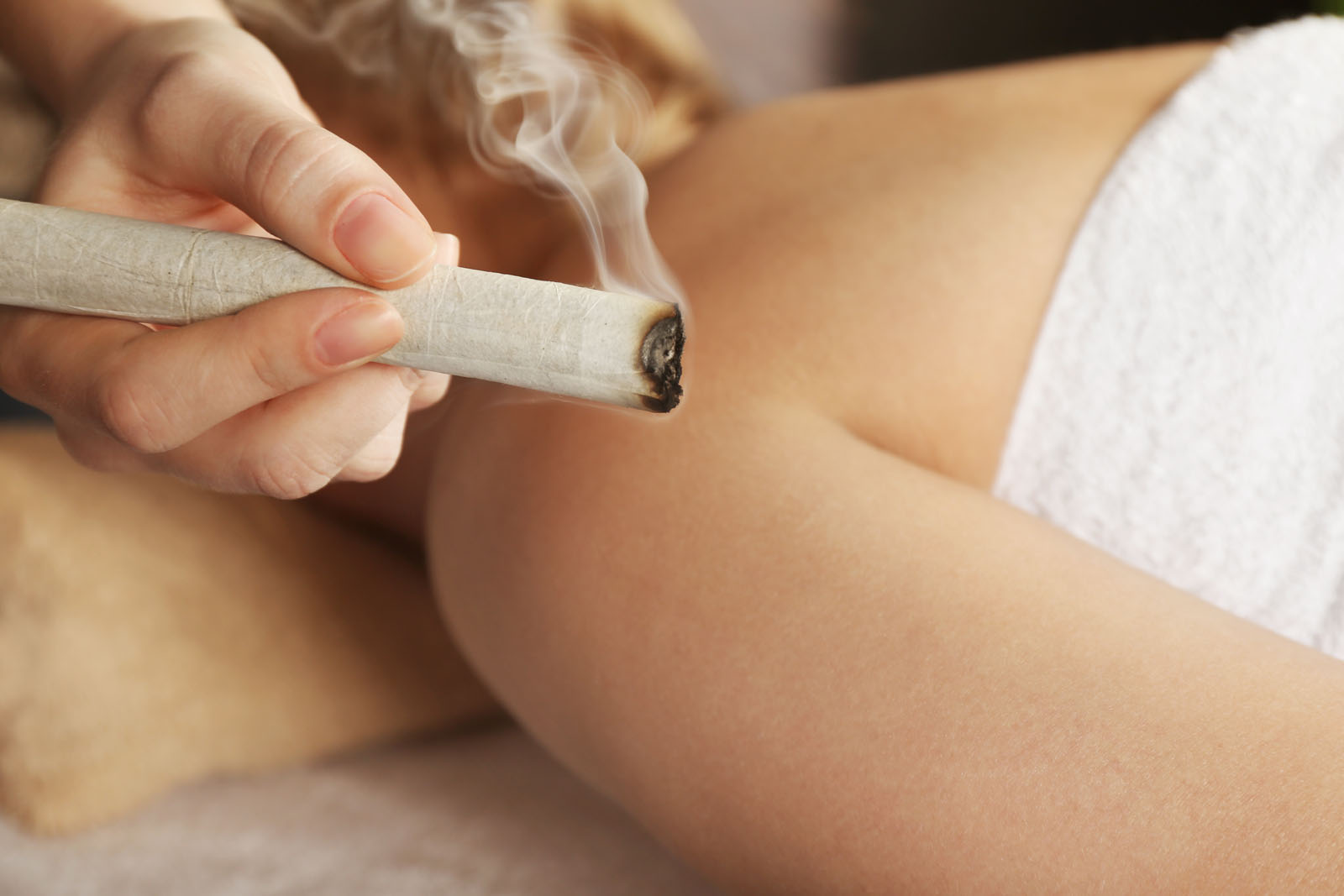
Moxibustion is a technique that involves the burning of mugwort, known as moxa, which is an herb that facilitates healing. The purpose of moxibustion is to stimulate the flow of Qi (pronounced “chee”), strengthen the blood and maintain general health. Qi is translated as life energy. There are two types of moxibustion, direct and indirect. Direct moxibustion uses moxa that is shaped into a small cone and is placed on top of an acupuncture point and burned. This type of moxibustion has two subcategories, scarring and non-scarring. Non-scarring moxa allows for the moxa to be placed upon the acupuncture point, lit and extinguished or removed before it burns the skin. Non-scarring moxibustion creates a pleasant heating sensation that penetrates deeply into the skin, but does not create a scar or any pain. Scarring moxa burns until it distinguishes on its own. This may lead to localized scarring and blisters. Indirect moxibustion is the more popular of the forms. In indirect moxibustion, a practitioner lights one end of a stick of moxa and holds it close to the acupuncture point for several minutes until the area turns red.
Moxibustion can be used for many reasons because it provides many benefits. The first benefit of moxibustion is it is warming to the body. Many people who have autoimmune diseases, low immunity and blood conditions are frequently cold. The warming properties of moxa make it a great choice for these types of conditions.
Moxa is also a good choice for those suffering from aches and pains. The warming properties of moxa allow it to increase blood flow by warming the blood. Increased blood flow means increased oxygenation to the tissues, muscles and tendons that are sore.
Another benefit of utilizing moxibustion is increased immunity. Studies have shown moxibustion significantly increases the white blood cell count in the body, which is the major component of the immune system. Moxa strengthens the immune system and helps re-balance autoimmune diseases.
Despite the fact moxibustion involves the burning of mugwort, it has been shown to be very beneficial for cooling areas of inflammation. This again goes back to blood flow. Moxa improves blood flow to areas of inflammation, while promoting the natural radiation function of the skin. This also works on chronic inflammation diseases like arthritis.
As moxibustion has many benefits and can be used to treat multiple diseases and ailments, it might be a good addition to a person’s health regimen. It is recommended that only properly trained and fully licensed practitioners be used and a quick internet search can easily provide the names of those located nearby. There’s never a better time than now to start incorporating healthy living habits.

